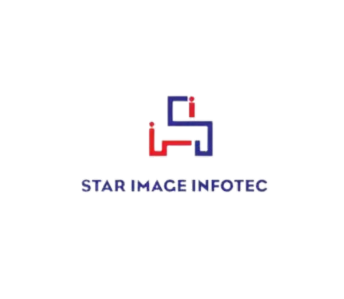- Mumbai Central & Mira Road
- +(91) 98333 44 333
- sales@globalteckz.com

OPEN SOURCE ERP SOLUTIONS
Open Source ERP (Enterprise Resource Planning) solutions are software systems that allow businesses to manage and automate core operations—such as inventory, sales, accounting, HR, and more—without the high licensing costs of proprietary software. These systems are developed using publicly available source code, offering flexibility for customization, integration, and scalability.
Open source ERP solutions empower small and medium-sized businesses with affordable, scalable, and fully integrated systems that adapt to their needs.
What is the Open Source Model?
The open source model is a collaborative and transparent approach to software development where the source code is publicly available. It allows anyone to inspect, modify, enhance, and redistribute the software. Unlike proprietary systems that restrict access, open source promotes community participation, innovation, and shared ownership—empowering developers and businesses to build and adapt solutions without vendor lock-in.
Cost-Effective
Open source ERP systems eliminate license fees, making them budget-friendly for small businesses without compromising on features.
Full Customization
You get full access to the source code, allowing for deep customization to fit your specific workflows and operational needs.
Scalability
Start with basic modules and scale up as your business grows. Ideal for small businesses planning long-term expansion.
Vendor Independence
No lock-in contracts. You can choose any service provider or manage the ERP system in-house with your own IT team.
Strong Community Support
A vast global community offers ongoing updates, documentation, and troubleshooting, keeping the system innovative and reliable.
Transparency & Security
Review and modify the source code to meet your own security standards. No hidden code or data vulnerabilities.
Faster Innovation
Open ERP platforms evolve quickly with contributions from developers worldwide, offering faster release of new features.
Easy Integration
Connect easily with third-party applications like payment gateways, CRMs, and eCommerce systems to enhance operations.
Data Ownership
Your business has full control over its data—critical for security, privacy, and compliance with industry regulations.
Who Should Use an Open Source ERP System?
Small & Medium Businesses
Cost-effective ERP solution to manage sales, inventory, accounting, and operations without heavy licensing fees.
Startups & Entrepreneurs
Build scalable operations from the ground up with customizable ERP tools and full control over business systems.
Manufacturing Units
Plan production, manage BoMs, monitor inventory, and control shop floor activities using tailored ERP features.
Retail & eCommerce
Sync sales channels, manage SKUs, automate invoicing, and connect POS systems to boost retail efficiency.
Educational Institutions
Manage student admissions, fees, staff, schedules, and exams using affordable open source ERP platforms.
Service-Based Companies
Track projects, client billing, contracts, and service tasks all in one place to improve service delivery.
Non-Profits & NGOs
Manage donors, volunteers, grants, and budgets without incurring software license costs.
Healthcare Providers
Digitize appointments, prescriptions, billing, and HR functions using healthcare-specific ERP configurations.
| Criteria | Open Source ERP | Licensed ERP |
|---|---|---|
| Initial Cost | Low or No Licensing Fee | High Licensing Cost |
| Customization | Highly Customizable (Full Source Code Access) | Limited to Vendor Capabilities |
| Ownership | Complete Control of Code & Data | Vendor-Owned Code, Restricted Access |
| Scalability | Scales Easily with Business Needs | Often Requires Upgrade or Higher License |
| Vendor Lock-in | No Vendor Lock-in | High Dependency on Vendor |
| Support | Community and Optional Paid Support | Official Vendor Support Included |
| Implementation Speed | Depends on In-house or Consultant Expertise | Standardized but Sometimes Slower Due to Bureaucracy |
| Security | Transparent Code, Custom Security Practices | Proprietary Security, Not Always Transparent |
| Innovation | Faster Due to Global Community Contributions | Slower; Vendor-Driven Releases |
| Best For | Startups, SMBs, Developers, Custom Needs | Enterprises with Standard Processes |
Odoo
A powerful and modular open-source ERP with apps for CRM, accounting, inventory, HR, and more. Offers both Community (free) and Enterprise (premium) editions.
Read MoreERPNext
An easy-to-use open-source ERP for SMEs. Covers manufacturing, retail, HR, accounting, and project management. Fully web-based and customizable.
Read MoreDolibarr
A lightweight ERP and CRM designed for small businesses and freelancers. Modular, easy to set up, and ideal for straightforward business needs.
Read MoreTypes of ERP Software
General ERP Software
General ERP systems are designed to cater to a wide range of industries with flexible processes and configurations. These platforms offer high integration capabilities and can be customized to suit specific business needs. While they provide a solid foundation for most companies, general ERP systems may lack advanced industry-specific features, making them more suitable for businesses seeking broad functionality over specialized tools.
Vertical-Based ERP Software
Vertical ERP software is industry-specific and built to address the unique challenges of particular sectors such as construction, healthcare, manufacturing, retail, and others. Unlike general ERP systems, these solutions offer advanced, pre-built features that align closely with standard operating procedures within a specific domain. While less versatile, they deliver deeper automation and improved efficiency for businesses operating within a clearly defined industry vertical.
ERP for Small Businesses
ERP software for small businesses is typically lightweight, offering essential features to manage core functions like sales, inventory, and finance. Available as both cloud-based and on-premises solutions, these systems are cost-effective and scalable. While they may not have extensive features out-of-the-box, they can be customized as the business grows, providing a flexible and practical entry point into enterprise resource planning for startups and small enterprises.
Open Source ERP Software
We offer best software methodology for for Open soruce ERP software implementation Development and Customizations.
ManufacturingVerticals
Trading Businesses
E-CommerceIntegrations
CustomizedOdoo











Open Source ERP – Frequently Asked Questions
Open Source ERP software is an enterprise resource planning system whose source code is freely available. Businesses can modify, customize, and implement it based on their specific needs without vendor restrictions.
Yes, Open Source ERP is ideal for small businesses due to its low cost, scalability, and ability to adapt to specific operational needs with minimal upfront investment.
Key benefits include lower ownership cost, flexibility, community support, no license fees, high customization potential, and integration with various tools and systems.
Yes. Open Source ERPs are frequently updated and tested by a wide community. Security also depends on your implementation strategy and how well your servers and permissions are managed.
Yes, most Open Source ERPs support third-party integrations through APIs. You can connect them with CRMs, eCommerce platforms, payment gateways, and more.
Open Source ERP offers free access to the source code with no vendor lock-in, while Licensed ERP is proprietary and requires annual or monthly licensing with limited customization rights.
Basic use doesn’t require technical skills, but advanced customization, setup, and hosting might need IT expertise or help from an ERP service provider.
Yes, support is available through online communities, forums, detailed documentation, and professional service providers who specialize in Open Source ERP implementations.
Startups, SMEs, large enterprises, educational institutions, NGOs, manufacturers, and service providers across industries can use Open Source ERP to manage operations.
Industries like manufacturing, retail, eCommerce, services, healthcare, education, logistics, and construction benefit from the flexibility and affordability of Open Source ERP systems.


Globalteckz is one of the leading Odoo integrators and ERP service providers in India, offering expert solutions in Odoo, ERPNext, and business automation for startups and enterprises. With a skilled team, we deliver customized ERP implementation, integration, and support services to streamline operations and drive digital transformation across India, UAE, USA, Canada, and the UK.
Let’s Meet Together
Mira Road Location: Unit 002, Building A7, Sector 5, Mira Road (East), Thane, Mumbai – 401107.
Call/WhatsApp:
+(91) 9833344333
+(91) 9773530597
Email: sales@globalteckz.com
Teams/Skype
kadriazhar | abraar.patel
Copyright © 2025 | Globalteckz - (India & USA). All rights reserved. | Terms and Conditions




